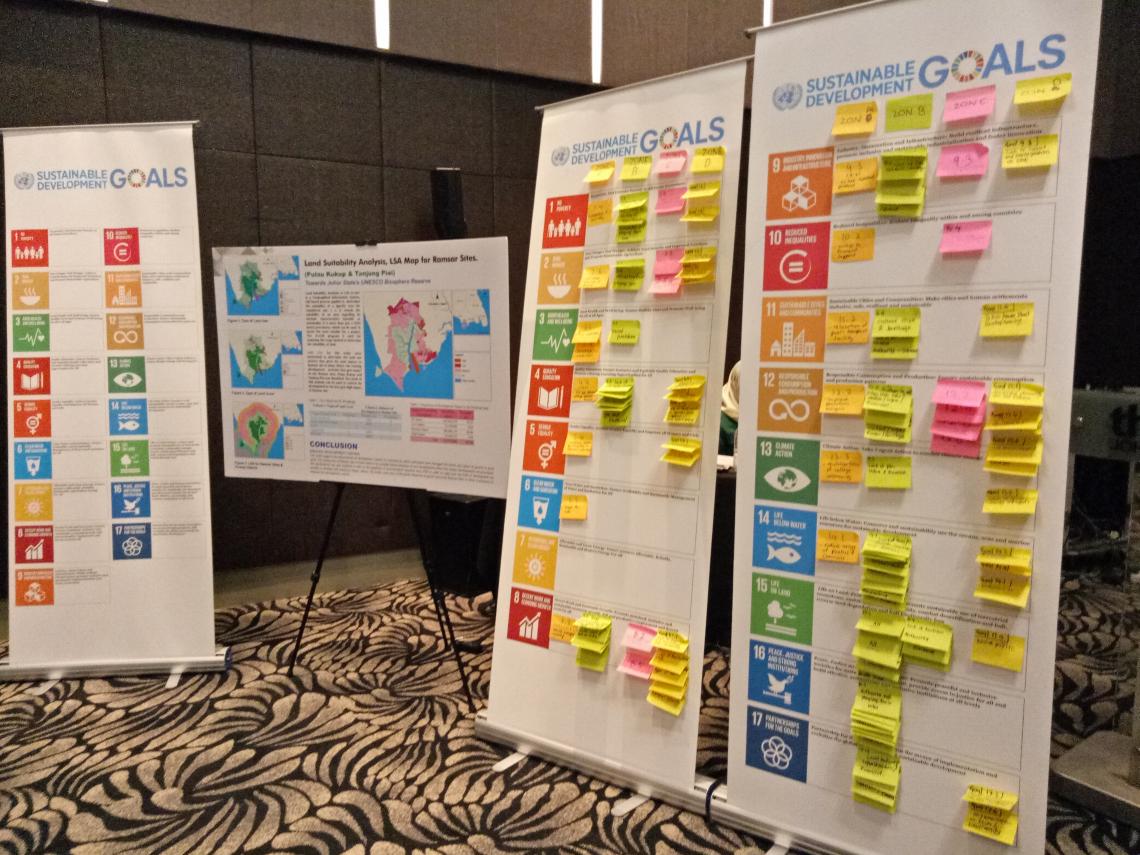The SL4C Participant
The Sustainability Leadership for Community (SL4C) program, conducted in Serkat District in Johor State, offers academics from a variety of disciplines an experiential and transformative learning process for attaining the core competencies needed to untangle the complex issues of sustainability with the local people.
Serkat district in Johor is home to two wetland conservation sites: Tanjung Piai at the southern-most tip of mainland Asia and Kukup Island. Both face coastal erosion due to shipping traffic at the Melaka Straight and the impacts of land reclamations.
They also face disappearing mangroves, which are important for protecting coastal areas from storm surges, and act as a resource for local tourism, fisheries, and timber and plant products. These wetland issues affect fisher communities, change the ecosystem, and impact local socio-economic stability.
Higher education institutions contain a large pool of experts who have a social responsibility towards their communities. But the setup in many higher education institutions hinders the development of the inter- and transdisciplinary sustainable development competencies, and the interpersonal skills, required for this purpose. Malaysia’s Higher Education Leader Academy (AKEPT) SL4C to address these issues.
Figure 1 : Sustainability Science Framework
The program combines the sustainability science approach (Figure 1) in the context of education for sustainable development (ESD) with the four steps of Kolb’s learning cycle: concrete experience, reflective observation, abstract conceptualization, and active experimentation. In this way, SL4C seeks to reconceptualize the dynamic interactions between humans and the environment.
Figure 2 : Sustainability Leadership for Community, SL4C Framework
SL4C begins with participatory, action-based research based on experiential, transformative and co-learning experiences. Participants then develop a contextual background to address local issues by co-designing a living lab of their study area. UNESCO’s Sustainability Science Framework is then implemented by academic leaders, the local community, stakeholders and government to untangle local sustainability issues. Fieldwork and community mapping, focus group discussions, multi-stakeholder workshops, and co-creation works are then conducted in order to develop an action plan. The program also teaches participants some core sustainable development skills. A set of local sustainable development goals is developed and, finally, local, tacit and scientific knowledge is combined to create a societal transformation.
Figure 3 : Set of localization of Sustainability Development Goals (SDGs)
The project succeeded in developing a framework and protocol for untangling the complex web of sustainability issues in Johor’s wetland sites. This was translated a Johor Sustainability Policy into the local plan, innovates the conventional planning technique to develop the local community-based tourism that support Johor Biosphere Initiative.
The program identified 22 social, ten economic and eight environmental issues and identified sustainable development goals for the area related to developing partnerships, responsible consumption and production, economic growth, strengthening institutions, and supporting life on land (Figure 3). A local action plan and map were also developed to support community-based tourism in the Johor Biosphere Initiative.
Figure 4 : Cultural Heritage Zone
The SL4C program was previously successfully deployed in Cambodia in 2015 and Bali, Indonesia in 2017. The SL4C has won the Silver Award from the Invention Innovation and Design Exposition, IIDEX 2020 and Gold Special Award from the World Invention Academic Conference, WAIC 2020, Korea recently. The sort video about the program can be found at https://www.youtube.com/watch?v=sdCOksUvqdg.
Figure 6 : Transdisciplinary Approach of Sustainability Science
The Sejahtera Center for Sustainability and Humanity acts as the secretariat for a pool of IIUM experts in sustainable development under the Regional Center for Expertise Greater Gombak (RCE-GG) for ESD. More information about this centre can be found at https://rce2g.iium.edu.my/ or via an email to [email protected].




